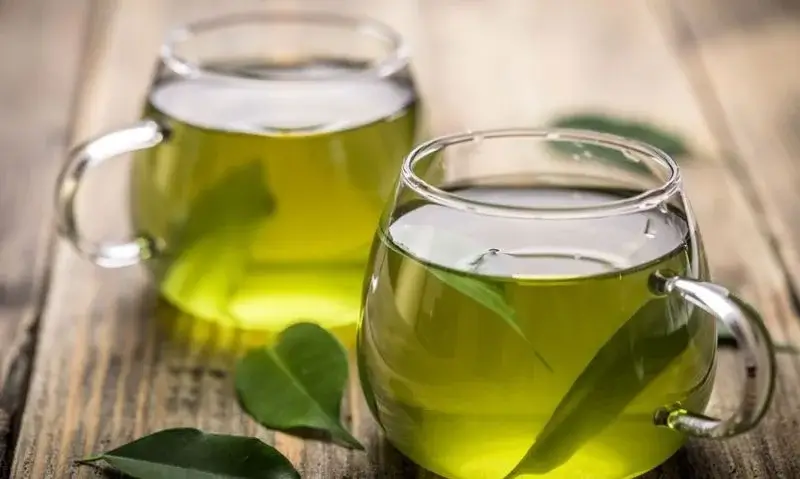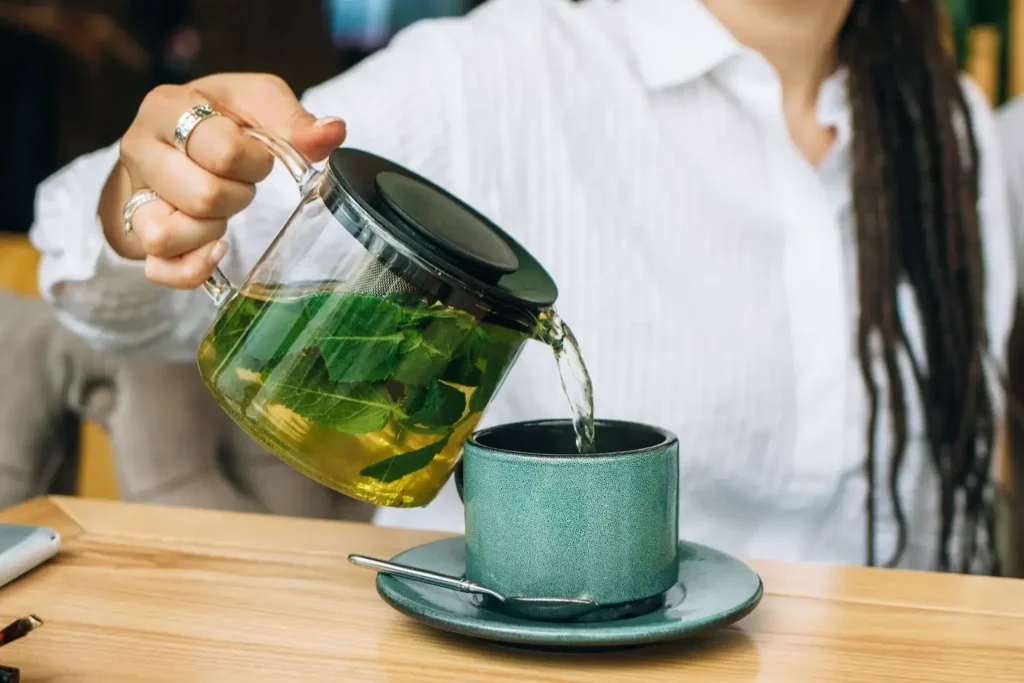Introduction
My daily routine always began with drinking one to three cups of I Drank Green Tea Instead Of Coffee for numerous years. The drink provided me with energy and focus to start my day. Although I strongly liked coffee, it caused too many unwanted problems, like increased heart rate and sudden drops in energy levels, and disrupted my ability to sleep.
A change of routine became my decision at that point. During a whole month, I drank green tea instead of coffee. I developed no expectations about the experience, yet the end results astonished me. The following information describes what occurred when I transformed from coffee drinker to tea drinker for one complete month.
Why I Decided to Switch
Personal Reasons for the Change
Even though giving up coffee seemed intimidating, I had several valid reasons to proceed.
- I wanted steady energy without the highs and lows.
- My sleep quality had taken a hit, and I hoped less caffeine would help.
- I often felt anxious and jittery, especially after a strong cup of coffee.
- Green tea has plenty of health benefits, and I was curious to see if they were real.
Is Green Tea Really Healthier?
Even though coffee presents no significant health risks, it provides better wellness benefits compared to green tea. The amino acid L-theanine present in green tea generates calmness without causing any mental dullness.
- Antioxidants that help fight inflammation.
- A metabolism boost that can support weight management.
- Better digestion and less acidity compared to coffee.
Green Tea vs. Coffee What’s the Difference?
Caffeine Levels
One of the biggest differences is the amount of caffeine in each drink.
| Drink | Caffeine Per Cup (8 oz) |
| Coffee | 95-200 mg |
| Green Tea | 30-50 mg |
The lower caffeine content in green tea prevents energy waves and nervousness from occurring while drinking it.
Nutrients and Benefits

Green tea consists of many antioxidants that include catechins, which benefit both mental and cardiovascular health. Coffee has antioxidants but does not include L-theanine as a compound that functions to maintain calmness.
The First Few Days of No Coffee
The Challenges
All honesty reveals that the initial period brought about no enjoyment.
- Headaches from caffeine withdrawal.
- All honesty reveals that the initial period brought about no enjoyment. Here’s what I struggled with:
- Headaches from caffeine withdrawal.
How I Made the Transition Easier
I didn’t quit coffee overnight. Instead, I:
- Cut back gradually over a week before switching completely.
- Tried different types of green tea to find one I liked.
- Added lemon and honey to improve the taste.
- Made tea part of my morning routine, just like I did with coffee.
How My Energy Levels Changed
Mornings Felt Different
At first, I worried that green tea wouldn’t give me the morning boost I needed. But after a few days, I noticed:
- A steady, more natural energy instead of a sudden jolt.
- Better focus and mental clarity without the caffeine jitters.
- No mid-morning crash, which was a big win.
Afternoon Energy Did It Last?
One of my biggest struggles with coffee was the afternoon slump. Surprisingly, with green tea, I felt:
- More sustained energy throughout the day.
- Less sluggish and foggy in the afternoons.
- Fewer cravings for sugary snacks to keep me going.
Unexpected Health Benefits I Drank Green Tea Instead Of Coffee
Better Sleep at Night
This was probably the biggest surprise. After a couple of weeks, I started sleeping:
- Faster and deeper, without tossing and turning.
- Without waking up in the middle of the night.
- More refreshed in the morning, even without coffee.
Easier Digestion
I used to deal with bloating and stomach discomfort, but green tea helped:
- Improve digestion and reduce bloating.
- Soothe my stomach, especially after meals.
- Keep me hydrated, since I drank more tea throughout the day.
Less Anxiety and Stress
Coffee used to make me feel wired and anxious. Green tea, on the other hand, made me feel:
- More relaxed and focused thanks to L-theanine.
- Less jittery, even after multiple cups.
- Calmer overall, which helped with stress.
Things I Missed About Coffee
Not everything about this experiment was easy. Here’s what I struggled with:
- Green tea has less caffeine, so I had to adjust.
- I missed the bold flavor of coffee. It took time to get used to tea.
- The habit of making coffee in the morning was hard to break.
Over time, though, I found green tea flavors I enjoyed and even started looking forward to my morning cup.
What Experts Say About Green Tea
Nutritionists Recommend It
Health experts love green tea because:
- It’s full of antioxidants that reduce inflammation.
- It helps with mental clarity and focus without overstimulation.
- It has a mild caffeine boost, making it a good coffee alternative.
Science Backs It Up
Studies show that green tea can:
- Boost metabolism and aid in weight loss.
- Support heart health by lowering bad cholesterol.
- Improve brain function and reduce stress.
Thinking About Making the Switch? Here’s What Helps
Find the Right Green Tea
Not all green teas taste the same. Some options to try:
- Matcha A stronger, powdered form with more antioxidants.
- Sencha A classic, mild green tea.
- Jasmine Tea A floral, lightly sweet option.
Brew It Correctly
Green tea can turn bitter if brewed wrong. Follow these tips:
- Use hot (not boiling) water – Around 175°F (80°C) is best.
- Steep for 2-3 minutes – Any longer, and it may get bitter.
- Try adding lemon, honey, or mint to enhance the flavor.
Make It Part of Your Routine
- Have a warm cup in the morning instead of coffee.
- Drink iced green tea in the afternoon for a refreshing boost.
- Try decaf green tea at night to wind down.
Common Questions About Green Tea
Does green tea have enough caffeine to replace coffee?
With fewer amounts of caffeine, it produces steady energy without the rollercoaster effect of crashes.
Can green tea help with weight loss?
Consuming coffee helps increase the metabolism while enabling better fat metabolism.
Are there any downsides to drinking green tea every day?
Consuming large amounts of liquid or iron-absorbing liquids generates gastrointestinal distress while the absorption of iron becomes obstructed.
What’s the best time to drink green tea?
You should drink Black Tea either in the early morning or during the afternoon to prevent sleep disturbances.
How many cups should I drink daily?
Using two to three cups provides the optimal benefits while staying within the safe range of caffeine consumption.
Does green tea stain teeth like coffee?
The consumption of cola will result in reduced teeth staining more effectively than coffee consumption.
Final Thoughts Was It Worth It?
Following thirty days without coffee, I have concluded that green tea was effective for me. The stability of my energy levels improved together with a better sleep quality and an increased sense of tranquility. Green tea is my preferred beverage since I stopped drinking it.

